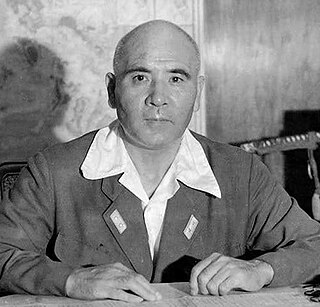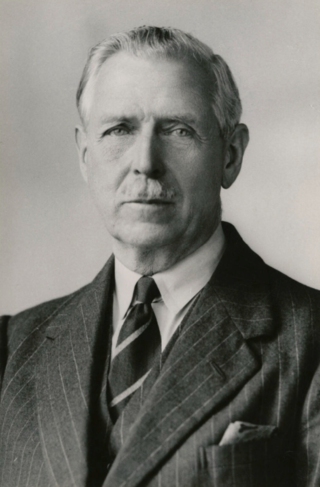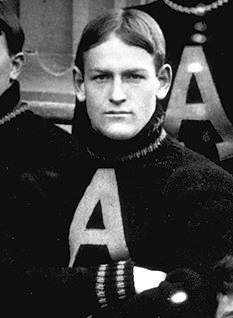
Major General Richard Jaquelin Marshall was a senior officer in the United States Army.

Wellesley is a town in Norfolk County, Massachusetts, United States. Wellesley is part of Greater Boston. The population was 29,550 at the time of the 2020 census. Wellesley College, Babson College, and a campus of Massachusetts Bay Community College are located in the town.

Masaharu Homma was a lieutenant general in the Imperial Japanese Army during World War II. Homma commanded the Japanese 14th Army, which invaded the Philippines and perpetrated the Bataan Death March. After the war, Homma was convicted of war crimes relating to the actions of troops under his direct command and executed by firing squad on April 3, 1946.

Gerald Wellesley, 7th Duke of Wellington,, styled Lord Gerald Wellesley between 1900 and 1943, was an Anglo-Irish diplomat, soldier, and architect.

Wilfrid Hyde-White was an English actor. Described by Philip French as a "classic British film archetype," Hyde-White often portraying droll and urbane upper-class characters. He had an extensive stage and screen career in both the United Kingdom and the United States, and portrayed over 160 film and television roles between 1935 and 1987. He was twice nominated for a Tony Award for Best Actor in a Play, in 1957 for The Reluctant Debutante and in 1973 for The Jockey Club Stakes.
Praying Indian is a 17th-century term referring to Native Americans of New England, New York, Ontario, and Quebec who converted to Christianity either voluntarily or involuntarily. Many groups are referred to by the term, but it is more commonly used for tribes that were organized into villages. The villages were known as praying towns and were established by missionaries such as the Puritan leader John Eliot and Jesuit missionaries who established the St. Regis and Kahnawake and the missions among the Huron in western Ontario.
Caleb Stark was an American state senator. He was the eldest son of General John Stark and his wife Molly Stark.

Catherine Sarah Dorothea Wellesley, Duchess of Wellington, known before her marriage as Kitty Pakenham, was the wife of Arthur Wellesley, 1st Duke of Wellington.

Paul Delmont Bunker was an American football player and soldier. Bunker attended the U.S. Military Academy and became the first football player at West Point to be selected as a first-team All-American by Walter Camp. Bunker was chosen as an All-American at the tackle position in 1901 and repeated as an All-American in 1902, but as a halfback. He served in the U.S. Army for 40 years and was in command of the coastal artillery forces in the Battle of Corregidor. On the fall of Corregidor, Bunker became a prisoner of war. He died of starvation and disease in a Japanese prison camp in 1943 after losing 70 pounds at the age of 61. His posthumously published journal, Paul Bunker's Diary, became a best-seller. He was elected to the College Football Hall of Fame in 1969.

Edward Russell Hicks was an American film character actor. Hicks was born in 1895 in Baltimore, Maryland. During World War I, he served in the U.S. Army in France. He later became a lieutenant colonel in the California State Guard.

The Hunnewell Estates Historic District is an historic district between the Charles River and Lake Waban in Wellesley and Natick, Massachusetts, about 17 miles west of Boston. It consists of the large group of 18th to 21st century agricultural and estate properties with farmland, gardens, residences, and landscapes of the Hunnewell and Welles families. The properties in the Historic District are still largely owned and occupied by members of the Hunnewell family. It was added to the National Register of Historic Places in 1988.
Sir Arthur Nonus Birch KCMG was Lieutenant Governor of Ceylon, Colonial Secretary for Ceylon and acting Lieutenant Governor of Penang and Province Wellesley (1871-1872).
Washington's aides-de-camp during the American Revolutionary War were officers of the Continental Army appointed to serve on General George Washington's headquarters staff, with the rank of lieutenant colonel. The headquarters staff also included one military secretary, a full colonel.

General John Munro of the H.E.I.C.S was a Scottish soldier and administrator who served as Resident and Diwan of the States of Travancore and Cochin between 1810 and 1819.

John Richard West, 4th Earl De La Warr, styled The Honourable John West between 1761 and 1783, was a British aristocrat and courtier.

Lieutenant-General Sir Hercules Robert Pakenham was a British Army officer who served as aide-de-camp to William IV of the United Kingdom.
The 1889 Birthday Honours were appointments by Queen Victoria to various orders and honours to reward and highlight good works by citizens of the British Empire. The appointments were made to celebrate the official birthday of The Queen, and were published in the London Gazette on 24 May 1889 and in The Times on 25 May 1889.

The surname Yale is derived from the Welsh word "iâl", meaning fertile ground, which was the name of the lordship of Yale in Wales of the royal house of Mathrafal. The name was later given to the estate of Plas-yn-Iâl by the House of Yale, a cadet branch of Mathrafal through the princes of Powys Fadog and Fitzgeralds of Corsygedol.

Major General Samuel Birch was an officer in the British army during the American Revolution that served as the commandant of New York City. He helped free and shelter thousands of slaves as recorded in the Book of Negroes. He was the commander of the 17th Regiment of (Light) Dragoons, the only British cavalry regiment in America. He participated in most of the significant engagements in the north. He is known for leading the failed attempt to kidnap George Washington.

General Sir Charles Reid was an officer in the East India Company and later Indian Army, and aide-de-camp to Queen Victoria.















